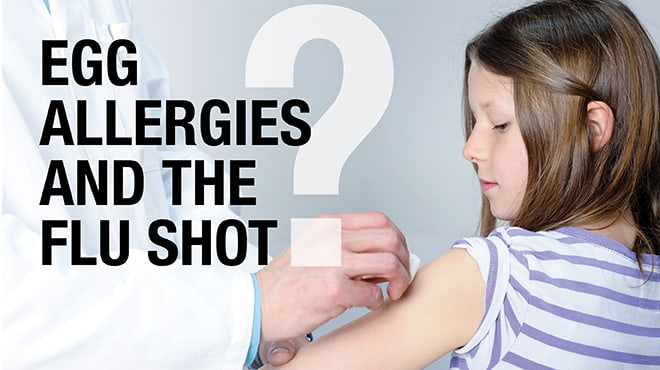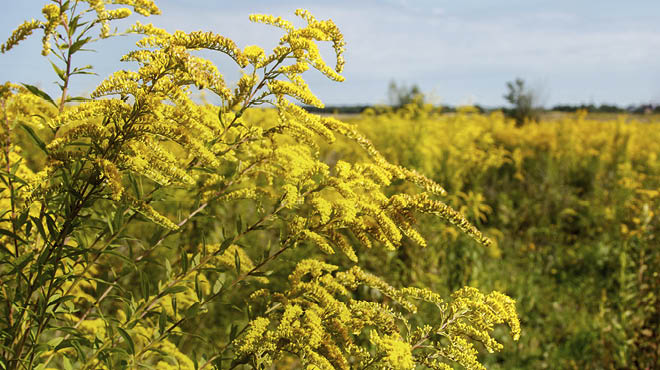Recent Posts
'Bee' prepared for bee and wasp stings

Summer's the season for gardening, playing outside, backyard picnics and enjoying the outdoors. It's also the season of stinging insects, such as honeybees and wasps. According to the American College of Allergy, Asthma and Immunology, about 5% of people are allergic to stinging insects.
Reactions to stings
Reactions to stings from honeybees and wasps range in severity from minor to potentially fatal. In most cases, stings only are annoying, and cause a brief, sharp pain, along with slight swelling and redness. Only home treatment is needed to ease the pain.
If you're allergic to insect venom, a more severe reaction, called anaphylaxis, can occur. This requires emergency medical attention.
Here's what happens when you're stung and have an allergic reaction: Your immune system reacts to the venom injected by the insect, and triggers your body's release of histamine and other chemicals. This response can cause severe reactions in some cases, such as:
- Difficulty breathing
- Dizziness and nausea
- Itching and hives throughout the body
- Swelling of the throat and tongue
- Stomach cramps and diarrhea
- Rapid fall in blood pressure, resulting in shock and, possibly, death
If you or someone you're with experiences any of these symptoms, you should immediately seek emergency medical care.
Treating stings
After any sting, remove the stinger as soon as possible. Use your fingernails or tweezers to scrape away the stinger. Don't squeeze the stinger or venom sac, which can cause more venom to be pushed into the sting area. Once the stinger is removed, wash the area with soap and water.
If you notice a minor to moderate reaction, such as redness, warmth or swelling around the sting, apply a cold compress and take an over-the-counter oral antihistamine. You also may want to apply hydrocortisone cream or calamine lotion to the area to ease symptoms.
Call 911 if you have a more severe reaction to a single sting or multiple stings, even if it's just one or two of the serious symptoms listed above.
Preventing stings
These tips can reduce your risk of getting stung by honeybees and wasps:
- Take care when drinking sweet beverages outside. Use cups with lids or water bottles with straws. Inspect cans and straws before drinking from them.
- Tightly cover food containers and trash cans.
- Clean up dirty dishes and remove food when you're done eating so they don't attract stinging insects.
- Wear closed-toe shoes when walking outside.
- Avoid wearing floral-scented perfume and lotions, as well as bright colors or floral prints, which can attract stinging insects.
- Be careful when mowing the lawn or trimming vegetation, which might disturb a beehive or wasp nest. If you come across a nest or hive, leave it alone.
- Have hives and nests near your home removed by a professional.
- If a few bees are flying around you, stay calm and slowly walk away. Swatting at an insect may cause it to sting.
- If you are stung or if many insects start to fly around, cover your mouth and nose and quickly leave the area. If you can, get into a building or closed vehicle. When a honeybee stings, it releases a chemical that attracts other bees.
If you've experienced an allergic reaction to a honeybee or wasp sting, talk with your primary care provider or an allergy specialist about prevention and treatment options. This could include being prescribed emergency medication, such as an epinephrine auto-injector, to use if stung.
Allergy shots may be recommended as a long-term solution. Venom immunotherapy has been found to be 95% effective in preventing future allergic reactions to stinging insects. It increases your tolerance to venom by injecting a small, increasing amount of venom weekly. Over time, your body stops perceiving the venom as a threat and reduces or eliminates your allergic response to it.
Be prepared to prevent and treat honeybee and wasp stings as you enjoy outdoor summer activities.
Adela Taylor, M.D., is an allergist in Eau Claire and Rice Lake, Wisconsin.




